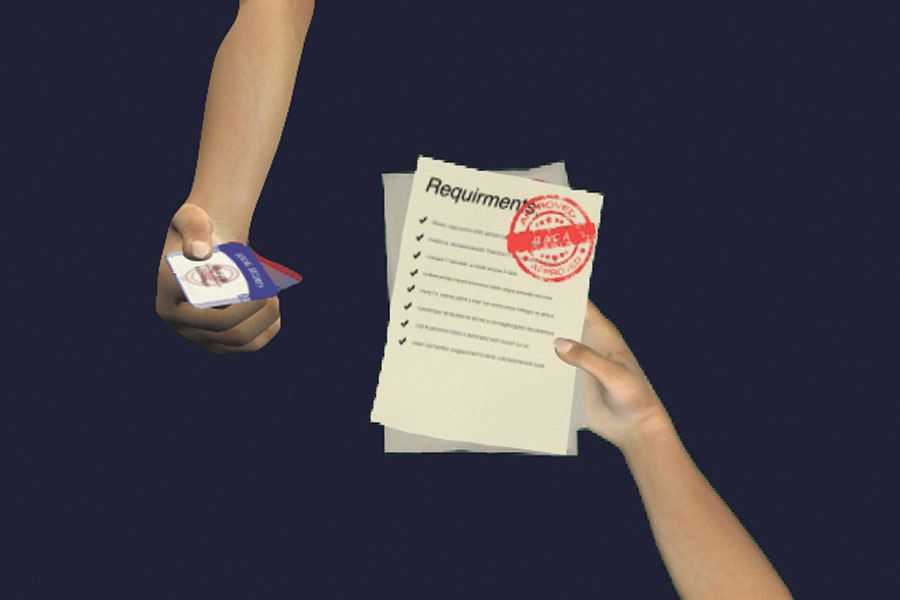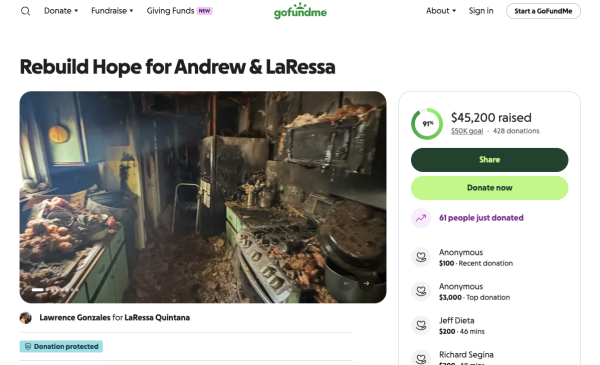Deferred Action for Childhood Arrivals helps students
DACA helps students receive Social Security numbers, drivers license’s, working permits and provides protection from deportation for two years.
October 7, 2014
While the college admission process intimidates many students, some are scared that applying for college could lead to their deportation.
In some cases, these students are stellar students who have potential to succeed in college and in their careers after they graduate. However, they often feel like they have to fly under the radar so immigration officials do not notice them.
“Most of the time, they are the students that work their hardest to do everything “just right” because they don’t want any attention brought to them,” College and Career adviser Sara Simmons said.
These students are the ones described as “Dreamers” by President Obama, who pushed for a reform of immigration laws for youth who were brought to the United States by their parents when they were children. The so-called “Dream Act” would have granted legal status to undocumented to those who graduated from high school, and attend college or enter the military.
“DACA provides driver’s licenses, work permits and protection from deportation for at least two years,” said Liliana Doñes, Advise Texas college representative
According to Simmons 10 to 20 percent of students at Akins are undocumented.
“In the last few years, I’ve had close to 100 students tell me they’ve received a Social Security number through DACA,” Simmons said.
Social Security numbers and work permits are needed for students who are planning on working after high school or in college.
“Many of these students who are going to college have to work as well to support themselves and without these permits it would become very difficult,” Doñes said.
Doñes plans to bring the University Leadership Initiative and International Student and Scholar Services to Akins for a DACA workshop. These organizations collaborate together to run a project called the Longhorn Dreamers, which helps students find resources through their program.
“Students just need to remember that we are here to offer help and answer any questions,” Doñes said.
ULI has created a website to centralize and clarify existing information specific to the University of Texas that would support undocumented students navigating admissions, financial aid, legal assistance and more.
“We have found that through our personal experience working in the university system, that the policies, processes and academic requirements of the university study can be extremely difficult to navigate for students who are undocumented,” assistant director Margaret Luévano said.
A senior Akins student, who asked to remain anonymous for this article, told The Eagle’s Eye that she attained deferred action status when she was a sophomore. She did not find out that she was not legally documented until her freshman year of high school.
“I feel like there should be equality for instate tuition everywhere for undocumented students under DACA,” the student said. “Tons of kids don’t even know they are undocumented until they grow up and their parents start telling them more information about their immigrant status.”
In Texas if you meet certain requirements you can qualify for in-state tuition, but you cannot apply for federal financial aid.
“Many counselors still don’t know that students can get in-state tuition and so they advise their students not to pursue higher education,” said Diana Morales, vice-president of ULI.
This can become a burden on students, especially when they are just finding out about their status.
“You just wake up one day, normal as any other, and then you find out that you don’t have the same rights and opportunities as everyone you grew up with,” the student said.
Students can apply for Texas Application for state financial aid, but the amount of money allocated for it is less every year.
“My family has to pay a lot of money for our visas and permits every two years and its very hard on my family,” the student said. “We need to save money anywhere we can.”
DACA helps give students the opportunity to work in the field of their choice after college.
“Now, many are able to work in their profession after graduating, and DACA helped with that,” Morales said.
ULI outreaches to the community several times to make sure that they know their rights as undocumented immigrants.
For more information go to these websites:
http://world.utexas.edu/isss/students/dreamers
http://www.texascivilrightsproject.org/dreamers/
http://www.uscis.gov/humanitarian/consideration-deferred-action-childhood-arrivals-daca







